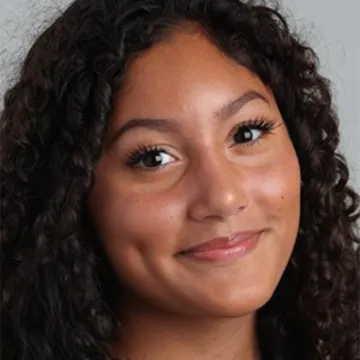
Aria Bernal participated as a senior studying Environmental Science, as well as a student athlete with Arizona Women’s Swimming and Diving. Aria grew up in a family of five in Houston, TX, where she first experienced the effects of climate change and observed how environmental pollution interacts with human health. Being introduced to the concept of environmental justice through UArizona coursework, Aria’s passion for equitable built environments inspired her to commit to a Master’s in Environmental Science with a minor in Sustainable Built Environments following graduation in 2022. Through Earth Grant, Aria worked with Dr. Monica Ramirez-Andreotta to support research related to stormwater quality in Tucson and effectively communicating the fate and transport of environmental contaminants in stormwater to the public.
Learn more about Aria's college journey in this Arizona Daily Star story.
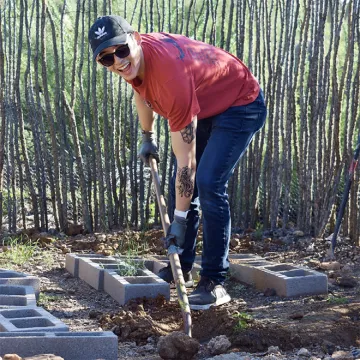
Brennan Breen participated as a senior majoring in Chemical Engineering with a minor in Biosystems Engineering, who developed an early love for the natural world as child living in the foothills of the Rocky Mountains. Brennan’s family also observed the effects of climate change during their time in this area, including decreased snowfalls and, more recently, unprecedented wildfires, which inspired him to pursue a career in sustainability. Brennan's Earth Grant internship at Compost Cats involved operating composting systems and program design, and training local businesses and community partners in composting best practices. Brennan concurrently held an internship with the Environmental Compliance team at Raytheon.
Following graduation in 2022, Brennan took a job as an engineer with Tent Engineering, a small engineering firm specializing in biogas.
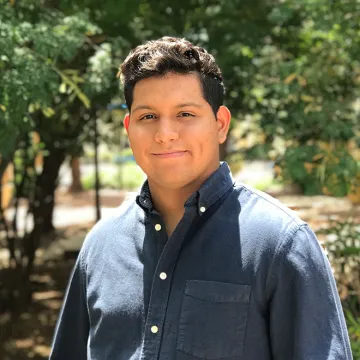
José Garcia participating as a senior majoring in Sustainable Built Environments with a minor in Spanish. José got involved with agriculture and sustainability at an early age when his middle school in Nogales, AZ, was one of the first in the city to develop a community garden. In high school, José participated in Semillas, an environmental and social justice education and action program for border youth. Through Earth Grant, José worked with Compost Cats as a program lead for FoodCycle, which collects food waste from City of Tucson facilities for processing at the Los Reales landfill and distribution to City parks and gardens. José managed program logistics, educated partners on composting best practices, and managed partnerships with City officials as well as 10 participating restaurants, as detailed in the below presentation.
Following graduation, José envisions a career in redesigning and remodeling homes in the Southwest for water, energy, and food resilience.
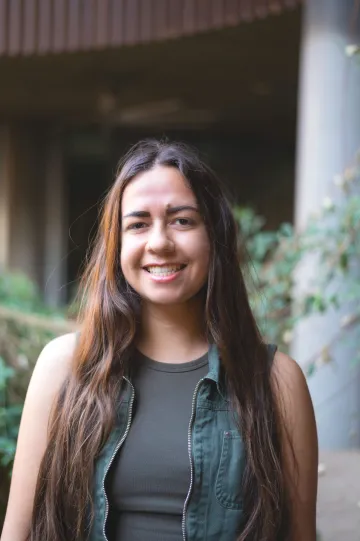
Madison Goforth participated as a senior majoring in Microbiology and Nutrition & Food Systems, born and raised in Tucson. Madison identifies her coursework in Food Systems and her participation in the Community & School Garden program as opening her eyes to socioeconomic disparities related to food and health. Through Earth Grant, Madison worked with the Community Food Bank of Southern Arizona’s Garden Programs, in partnership with City of Tucson and Native Seeds/SEARCH, to propagate native mesquite trees and other high-yielding, desert-adapted native food plants, and making them available to communities that are most impacted by poverty, climate instability and water stress.
After graduation in 2022, Madison chose to continue her studies at UArizona through the master's program in Microbiology. Madison ultimately envisions a career in sustainable food systems that make healthy food accessible to low-income communities.
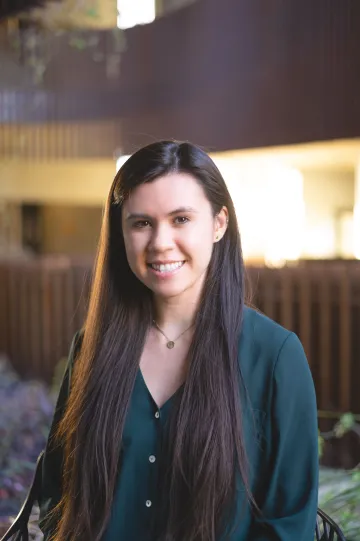
Jamie Irby participated as a senior majoring in Environmental Science and Computer Science. After learning about record-breaking heat waves, species extinction, and communities destroyed by natural disasters, Jamie experienced what she jokingly refers to as “a midlife crisis,” which prompted her to add the Environmental Science major and begin assisting with soils research in Dr. Blankenship’s lab on campus in effort to contribute positively to the environment. Through Earth Grant, Jamie worked with the Living River team at Sonoran Institute, to lead an in-depth research project on trash in the Santa Cruz River, one of Tucson's most important waterways. Jamie collected data and communicated methods and findings to government partners like Arizona Department of Environmental Quality, Pima Association of Governments, and Pima County Regional Flood Control District, with the goal of addressing trash in the Santa Cruz River at a structural level. Jamie’s data is directly informing the Regional Flood Control District’s flood control management and engineering plans, as their stakeholders have consistently identified trash a priority issue. For an overview of the Santa Cruz River trash study, see Jamie's presentation to the Pima Association of Governments, starting at the 1:15 mark on this meeting recording.
After graduation in 2022, Jamie started as a PhD student at UC Riverside, where she is studying wildfire-affected soils under Dr. Pete Homyak.
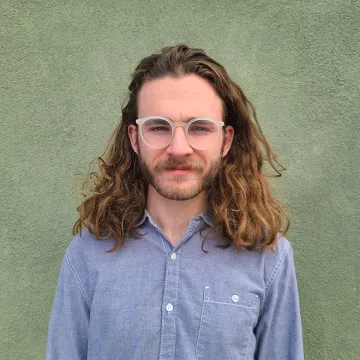
Nicolas Katz participated as a senior majoring in Ecology and Evolutionary Biology, with a minor in Marine Science, who aspires to be “a steward of land and an agricultural revolutionary.” Building on past work experiences with STEMCats, Center for Biological Diversity, and Defenders of Wildlife, Nicolas worked through Earth Grant with Collaborative Conservation and Adaptation Strategy Toolbox (CCAST), a collaborative effort of the University of Arizona, U.S. Fish and Wildlife Service, and the Bureau of Reclamation. In this partnership, Nicolas collaborated with scientists and natural resource managers to produce case studies that focus on natural and cultural resource management actions, to make technical information more accessible for land management practitioners. Two of Nicolas's case studies and related handouts are available here:
Following graduation in 2022, Nicolas took a seasonal job a field research aide with a Forest and Disturbance Ecology lab at the University of Washington. He plans to start graduate school in Fall 2023, to pursue research and science communication around ways agricultural land can also support wildlife populations, food sovereignty, and social wellness through equitable land management.
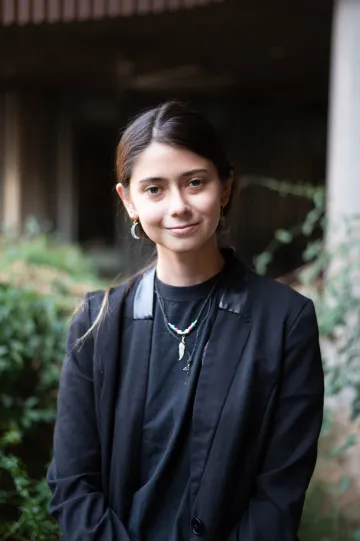
Micah Kaufmann participated as a junior studying Environmental Science with a minor in Anthropology, who believes “humans are integral parts of ecosystems, and not something that can be separated from the natural world.” Micah identifies a previous internship with the Bolsa Chica Wetlands Conservancy as a life-changing experience, where they realized their love for outdoor field work, botany, and birds, and discovered a talent for public engagement. Through Earth Grant, Micah further developed these skills through work with Sky Island Alliance’s Border Wildlife and FotoFauna programs. These programs document borderlands wildlife habitats and corridors, to better advocate for meaningful protection and restoration in the face of human development threats, like the U.S.-Mexico border wall and interstate highways.
Bringing wildlife monitoring skills back to the campus community, Micah installed and monitored a wildlife camera in the courtyard behind the College of Architecture and Landscape Architecture building. Species sightings included leopard frogs, a Cooper's hawk, and many fascinating humans. Micah summarized their work and findings in this presentation:
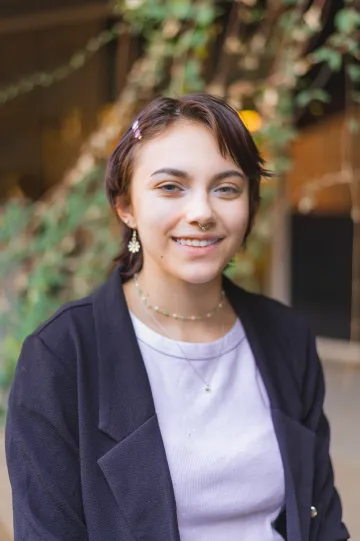
Jazz Lewandowski participated as a junior studying Biosystems Engineering with a minor in Microbiology. Growing up in rural Louisiana with nine siblings, Jazz is passionate about developing solutions to food deserts so that struggling families always have access to nutritious food. Their vision for the future includes low-cost hydroponic systems made from recycled materials that could be affordable and accessible for households in poverty, along with widespread education around the basics of food production. Through Earth Grant, Jazz worked with both Awareness Ranch and the Community Food Bank of Southern Arizona, supporting small scale vegetable production and aquaponics systems and creating educational materials for small growers, such as the example below.
Jazz aspires to design efficient, low-cost greenhouses professionally, and is already gaining experience by designing and testing mini greenhouses at home for their extensive collection of houseplants.
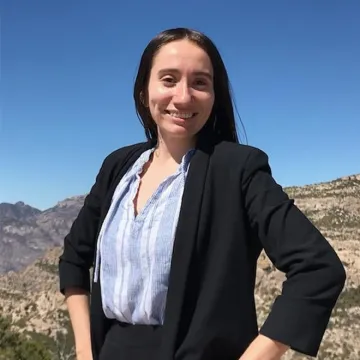
Kendra Martinez participated as a senior majoring in Psychology with a minor in Care, Health and Society. Kendra cites inspiration from her father, an immigrant from Honduras, and her mother, an agricultural extension agent in the San Carlos Apache Reservation area, as influencing her love of plants, health, and community engaged education. Through Earth Grant, Kendra worked with Local First Arizona’s Sustainability team, to support their ScaleUp program with local business through training and incentives to improve environmental and social benefits of their business operations, as summarized in the report below.
After graduation, Kendra chose to pursue a Masters degree in Public Health. Looking forward, Kendra aspires to be a public health professional working in community development in Latin America, driving solutions to interconnected community and environmental problems.
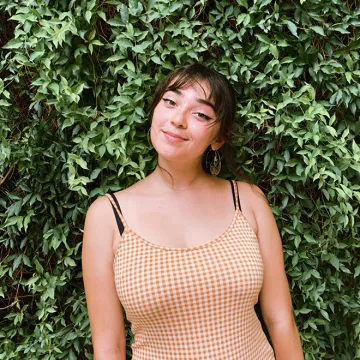
Paloma Martinez participated as a junior majoring in Food Studies and Environmental Studies, who identifies the social justice-oriented community she grew up in as giving her a strong sense of purpose from an early age. Her educational experiences at Changemaker High School, as well as volunteer work with the adult detention system, Ironwood Tree Experience, and Sustainable Nations further developed Paloma’s passion for social justice, land stewardship, ecosystem function, and indigenous strategies. Earth Grant supported Paloma in working with Flowers and Bullets’ Midtown Farm, a collectively run education and food production space located in Barrio Centro, a predominantly low-income community of color. Paloma successfully developed and managed a Barrio Supported Agriculture (BSA) Pilot program, where community members received a weekly bag of produce harvested from the Midtown Farm and a newsletter about the vegetables with recipes. In 2022, Earth Grant will continue to support Midtown Farm's full scale BSA program, in part due to the procedures that Paloma helped establish, below.
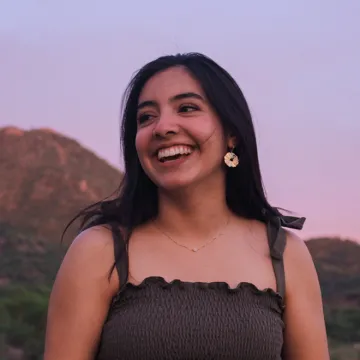
Samantha Mata Robles participated as a junior majoring in Biomedical Engineering. Samantha cites early experiences observing family and community members in Hermosillo, Sonora, struggle for adequate access to health care, as driving her passion for sustainable and equitable health systems. Samantha further gained interest in women’s empowerment in STEM through previous work with WISE, and gained entrepreneurship skills through volunteer work with local community organizations FOCUS and Tec de Monterrey. Through Earth Grant, Samantha worked with StartUp Unidos on various border-engaged initiatives, including the WASTE NOT partnership focused on community-driven strategies to address food waste in the Rio Rico and Ambos Nogales region. An example of materials created is below.
In April 2022, Samantha co-coordinated a virtual conference on diversity and equity in STEM, highlighted on the Earth Grant blog. After graduation, Samantha plans to pursue graduate school and a career in low-cost, sustainable solutions for communities in poverty to have greater agency and access in health decision making.
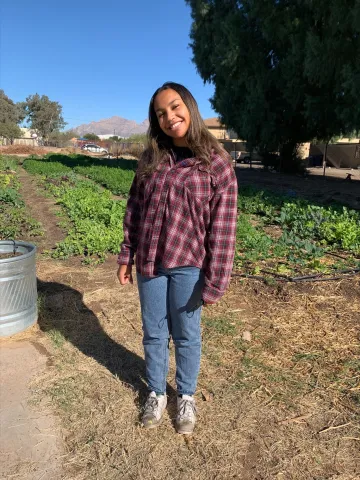
Ani Melichar participated as a sophomore majoring in Engineering with a minor in French. Growing up in an agricultural community with family members in the medical field, Ani developed an early love for science and the environment. Ani strives to be a professional role model for other girls of color in STEM, and to tell them through her success, “There is a space for you here, and you are welcome in this space.” Ani completed an internship with the International Rescue Committee’s New Roots program, which enables refugees to attain food security, a higher level of self-sufficiency, and improved community integration through growing local fruits and vegetables. In this role, Ani applied her agricultural knowledge, engineering savvy, and French language skills, and gets to practice her Swahili- which, she notes, helps in communicating with some of her own family members living in Kenya. Following two years of pandemic-related activity restrictions, Ani designed and facilitated an in-person workshops for refugee garden members on mental health practices in the garden. This workshop uses the metaphor of “transplanting” – just as a relocated plant needs extra care to adjust to new surroundings, immigrants and refugees often experience stress in the adjustment to a new home, compounded with other experienced trauma. This workshop is an opportunity for participants to calm the nervous system and feel grounded through sensations like fresh soil on fingertips and the smell of fresh herbs. View the lesson plan below.
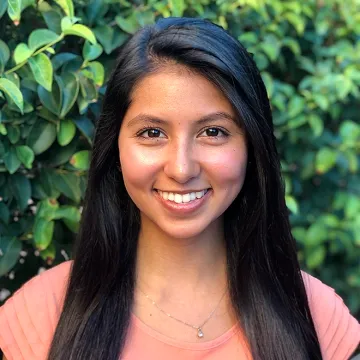
Chelsea Mendoza participated as a senior studying Environmental Science with a minor in Spanish, while also serving as co-director of Students for Sustainability, helping connect other students to environmental projects and campus sustainability initiatives. In her own words, Chelsea aims to work directly with “communities that are disproportionately impacted by environmental contamination” and envisions a career in environmental policy. Supported by Earth Grant, Chelsea built and tested a novel low-cost bucket filter system based on a strategy used in Bangladesh to remove arsenic from well water in Dr. Monica Ramirez-Andreotta's lab, and presented her original research to the Dewey-Humboldt Community Environmental Board, including representatives from the Yavapai County Health Department and Arizona Department of Environmental Quality. Chelsea's results showed effective removal of arsenic from samples, and further testing could demonstrate this system as a viable strategy for Dewey-Humboldt, AZ residents and other rural communities with arsenic contamination in residential wells.
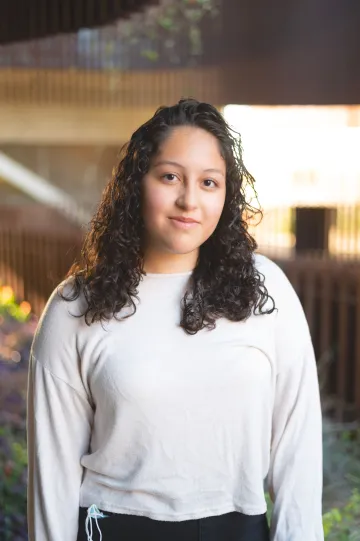
Lexis Meza participated as a freshman studying Biology, who identifies as a lifelong nature lover, teacher, and helper of people who “isn’t shy to step up when needed.” During the pandemic, Lexis reaffirmed her passion for environmental education, and aims for a career that integrates teaching and leadership, the environment, and her family’s Mexican-American culture. Through Earth Grant, Lexis worked with Sierra Club’s Outdoor Activities team and Sierra Club Foundation's Inspiring Connections Outdoors program to build partnerships and facilitate positive outdoor experiences with groups demographically underrepresented in outdoor recreation.
Lexis shared a story of her family history and how it fuels her passion for reconnecting with culture and nature at the 2022 YWCA Climate Action Conference and AIR Experiential Learning Student Showcase. For the 2022-23 academic year, Lexis joins the Earth Grant team as a student Program Assistant.
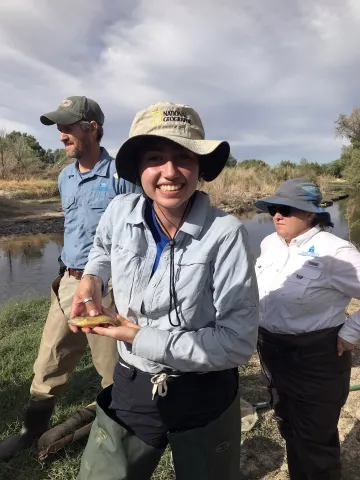
Katerina Sacoman participated as a senior majoring in Ecology and Evolutionary Biology, with minors in Environmental Science and Natural Resources, who describes her favorite activity as “problem solving.” Katerina previously honed her skill in science communication and data literacy through previous participation in UArizona programs the Bio/Diversity Project and the Minimizing Health Disparities summer program. Through Earth Grant, Katerina worked with Pima County Office of Sustainability and Conservation to support various aspects of the Sonoran Desert Conservation Plan, including field monitoring, supporting the Pima County Native Plant Nursery, and revising native plant profiles. A notable accomplishment of Katerina's internship was successfully revising the Pima County Plant Salvage and Selection Procedure, which provides guidance on safe removal of native plants and native plant selection in new construction. To do this, Katerina conducted personal interviews with a variety of County and contractor employees on their native plant practices, and checked back with them continuously for feedback throughout the revision process. The revised Administrative Procedure employs a user-friendly format, with a checklist of actions that construction staff can easily follow. Click the links below to hear more about this project directly from Kat, and to view the original and revised Procedures.
After graduation in 2022, Katerina chose to continue her studies at UArizona through the Masters in Environmental Science program.
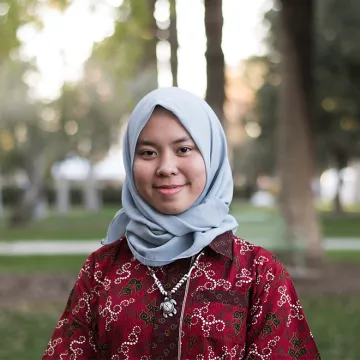
Syaffia Sahl participated as a senior majoring in Global Studies with a minor in Global Education. Syaffia’s previous work includes academic research in disaster management and the interactions between gender and natural disasters. Although Syaffia originally envisioned a career in international community development, her coursework related to the environment sparked an interest in the interaction between humans and the natural world, and exploration of "what a sustainable future really looks like." Through Earth Grant, Syaffia worked with the Southwest Environmental Health Sciences Center (SWEHSC)’s Community Engagement Core to disseminate environmental health information to community audiences in ways that are accessible, culturally appropriate, and empowering. The below presentation provides an example of Syaffia's educational work. Following Earth Grant, Syaffia continued working with SWEHSC as a student employee.
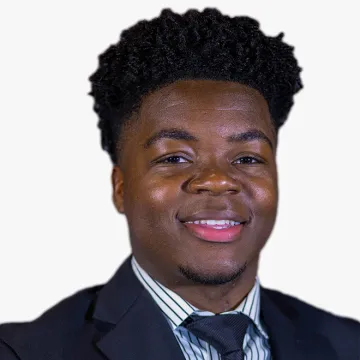
Kodjo "Daniel" Seddo participated for Fall 2021 as a senior majoring in Systems Engineering with a minor in Information Technology. Daniel’s passion for whole systems, sustainability, and enterprise has inspired him to pursue previous internships with Motorola and Southwest Gas. Through Earth Grant, Daniel worked with Pivot Produce, a local food distribution business which receives organically grown produce from 10-20 local producers each week, and distributes to 15+ restaurants, 200+ low income seniors, 200+ households, local grocers, and institutions like the Arizona Student Unions. Daniel worked with Pivot Produce to analyze and improve their inventory and sales management systems, for better workflow and ensured food safety.
After graduation, Daniel envisions his professional future working in business and product management in a way that benefits both the environment and community.
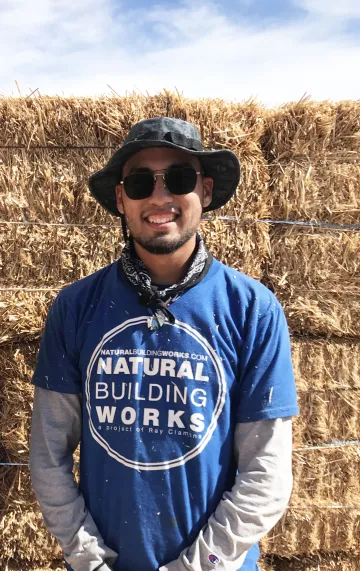
Daniel Vega is a local Tucsonan and Pascua Yaqui tribal member, who participated as a senior studying Sustainable Built Environments. Passionate about efficient and sustainable design, Daniel gained knowledge and experience through UArizona coursework, rainwater harvesting certification at Watershed Management Group, and consulting on design proposals for the Tortuga Ranch property, owned by the Pascua Yaqui Tribe. Through Earth Grant, Daniel worked with Ray Clamons of Natural Building Works to support the design, development, and building of rammed earth and straw bale structures.
Following graduation in December 2021, Daniel chose to continue his studies at UArizona through the Masters in Architecture program. He describes his future career goal as, “to use my education and skills to work for the Pascua Yaqui Tribe and implement many strategies and ideas to create more efficient homes for our community.”

